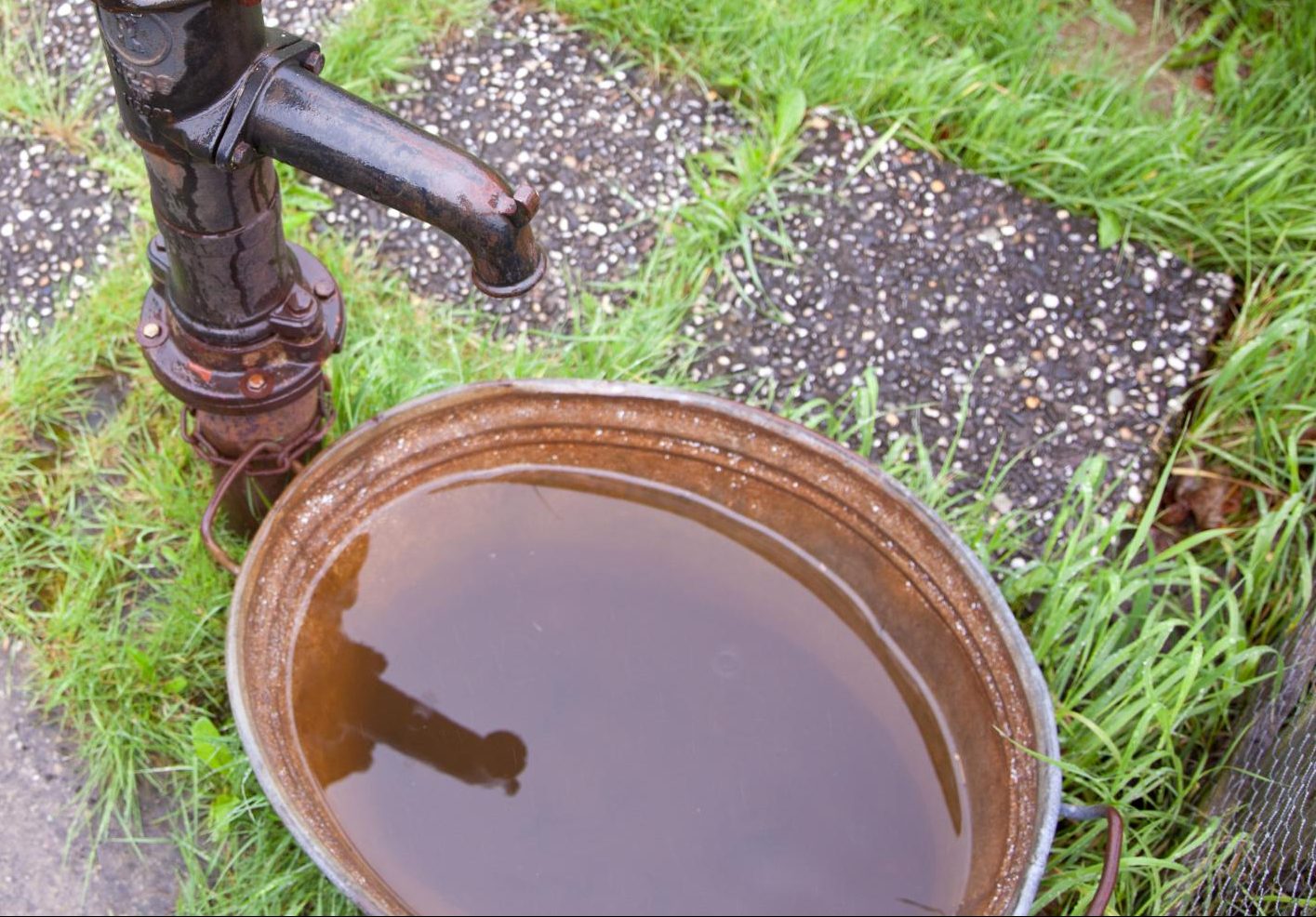Do you rely on well water for your home? Ensuring your water is safe to drink is crucial, and well chlorination is one effective way to achieve that. Chlorination is a process where chlorine is added to your well water to kill harmful bacteria and other pathogens. But when should you consider this treatment?
Whether you’ve noticed changes in your water’s taste, smell, or color, or you’ve had recent flooding or maintenance work on your well, these could be signs that chlorination is needed. Regularly treating your well not only keeps your water safe but also gives you peace of mind knowing that your family is drinking clean and healthy water.
What are the signs that well water needs chlorination?
Signs that well water may need chlorination include:
- Presence of Contaminants: If water testing reveals the presence of harmful bacteria, such as coliforms or E. coli, chlorination is necessary to disinfect and eliminate these pathogens.
- Unpleasant Odors: A noticeable odor, such as a sulfuric or rotten egg smell, can indicate contamination or the presence of microorganisms that may require chlorination to address.
- Cloudy or Discolored Water: Water that appears cloudy, murky, or discolored may contain particles or microorganisms that can be treated with chlorination to restore clarity and safety.
- Frequent Illnesses: If there is a pattern of gastrointestinal illnesses or other health issues among individuals using the well water, it may signal contamination and the need for chlorination.
- Recent Well Repairs or Contamination: After well repairs, flooding, or any suspicion of contamination from surface runoff or nearby sources, chlorination can help ensure the water is safe for consumption.
- Routine Testing Results: Regular water testing is crucial. If test results consistently show elevated levels of bacteria or other contaminants, chlorination should be considered part of a water safety plan.
Addressing these signs promptly with good chlorination helps maintain the safety and quality of your well water, ensuring it is safe for drinking and other household uses.
How does chlorinating well water improve its safety?
Chlorinating well water significantly enhances its safety by eliminating harmful microorganisms and pathogens that pose health risks. Here’s how chlorination improves water safety:
- Kills Pathogens: Chlorine is a powerful disinfectant that effectively kills many pathogens, including bacteria (like E. coli and coliforms), viruses, and protozoa. This prevents waterborne diseases and reduces the risk of gastrointestinal infections and other illnesses.
- Reduces Contamination: Chlorination disinfects the water and helps eliminate contaminants that may have entered the well due to surface runoff, improper well construction, or other sources of pollution.
- Improves Water Quality: Chlorination helps to remove or reduce unpleasant odors and tastes often associated with bacterial contamination or organic matter. This leads to cleaner, fresher-tasting water.
- Prevents Recontamination: Chlorine residuals can provide ongoing protection by maintaining a disinfectant presence in the water system, reducing the chance of recontamination between treatment periods.
- Enhances Overall Safety: Regular chlorination as part of a comprehensive water treatment plan helps ensure that the water remains consistently safe for drinking and other household uses, providing peace of mind for users.
Chlorinating well water is a crucial step in maintaining its safety and quality. It effectively disinfects and protects against microbial contamination.
How often should well water be chlorinated for safe drinking?
The frequency of well water chlorination depends on several factors, including the water quality, usage patterns, and specific circumstances of the well. Here are some general guidelines:
- Routine Maintenance: For most residential wells, chlorination is typically performed once a year as part of routine maintenance. This helps ensure ongoing disinfection and water safety.
- After Repairs or Contamination: If there is any indication of contamination, such as during or after heavy rainfall or flooding, or if test results show high bacteria levels, chlorination should be done immediately after well repairs or construction.
- Periodic Testing: Regular water testing is essential. More frequent chlorination may be needed if tests reveal bacterial contamination or other water quality issues. Testing every 6 to 12 months is common, but you should follow local guidelines or the recommendations of a water treatment professional.
- Seasonal or Event-Driven: In some cases, especially in areas with frequent environmental changes, chlorination may need to be adjusted based on seasonal factors or specific events that could impact water quality.
- Consult Professionals: It’s important to consult with a water treatment professional who can assess your specific needs and provide tailored recommendations based on the condition and usage of your well.
Adhering to these practices helps maintain the safety and quality of well water, ensuring it remains safe for consumption and use.
What are the potential risks of not chlorinating well water?
Not chlorinating well water can pose several risks, including:
- Health Risks: Untreated well water may harbor harmful bacteria, viruses, and parasites, such as E. coli, coliforms, and Giardia. These pathogens can lead to serious gastrointestinal illnesses, infections, and other health problems.
- Contamination: Without chlorination, the water is more susceptible to contamination from various sources, including surface runoff, agricultural chemicals, or sewage. This can increase the risk of waterborne diseases and poor water quality.
- Unpleasant Odors and Tastes: Lack of chlorination can result in unpleasant odors and tastes due to the presence of bacteria and organic matter. This can make the water less palatable and may discourage its consumption.
- Decreased Water Quality: Proper disinfection can improve the overall quality of water. This can affect not only the taste and appearance but also the safety of the water for cooking, cleaning, and other household uses.
- Increased Risk of Biofilm Formation: Unchlorinated water systems are more prone to biofilm formation in pipes and storage tanks. Biofilms can harbor bacteria and other microorganisms, leading to further contamination and potential health risks.
- Regulatory and Legal Issues: Safe water quality is legally required in some regions. Failure to chlorinate well water may result in non-compliance with health regulations and potential legal consequences.
Regular chlorination is essential to mitigate these risks and ensure that well water remains safe, clean, and suitable for consumption and use.
Ensure Safe Water: Schedule Chlorination Today!
At Well Doctor LLC, we prioritize your health by providing expert well-chlorination services to keep your drinking water safe and clean. Chlorination eliminates harmful bacteria, viruses, and pathogens that can compromise water quality and pose health risks.
Whether you’re dealing with recent contamination, have concerns about your well’s safety, or need routine maintenance, our professional team is here to help. Don’t wait for water quality issues to arise—contact us today to schedule your chlorination service and enjoy peace of mind knowing your water is safe for you and your family.

